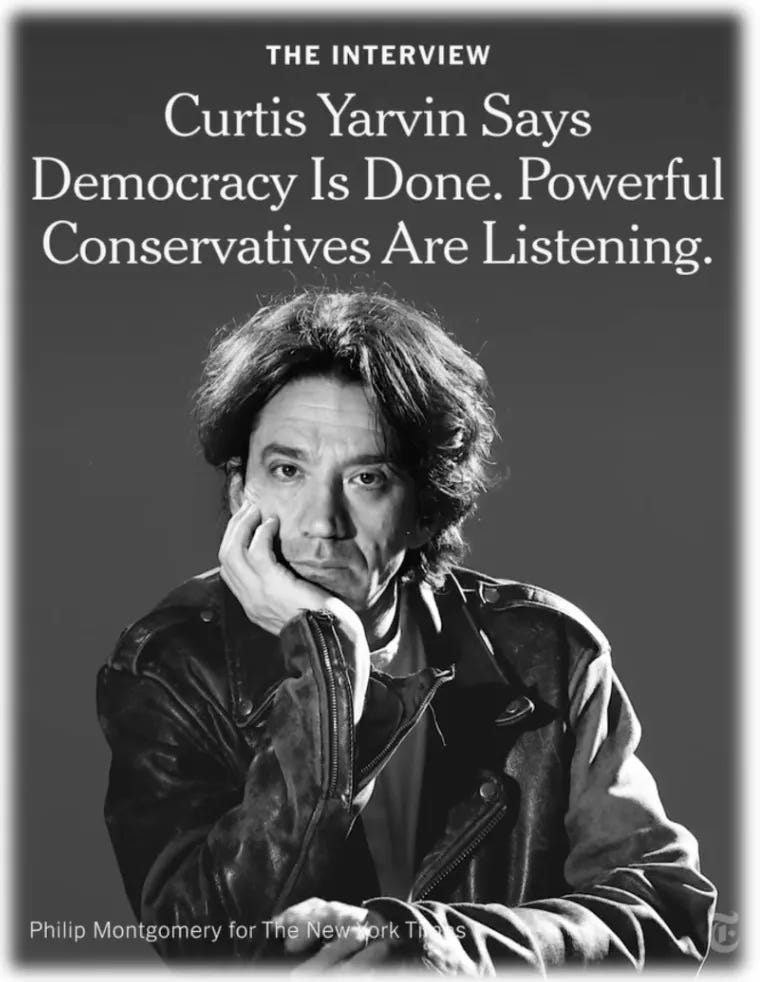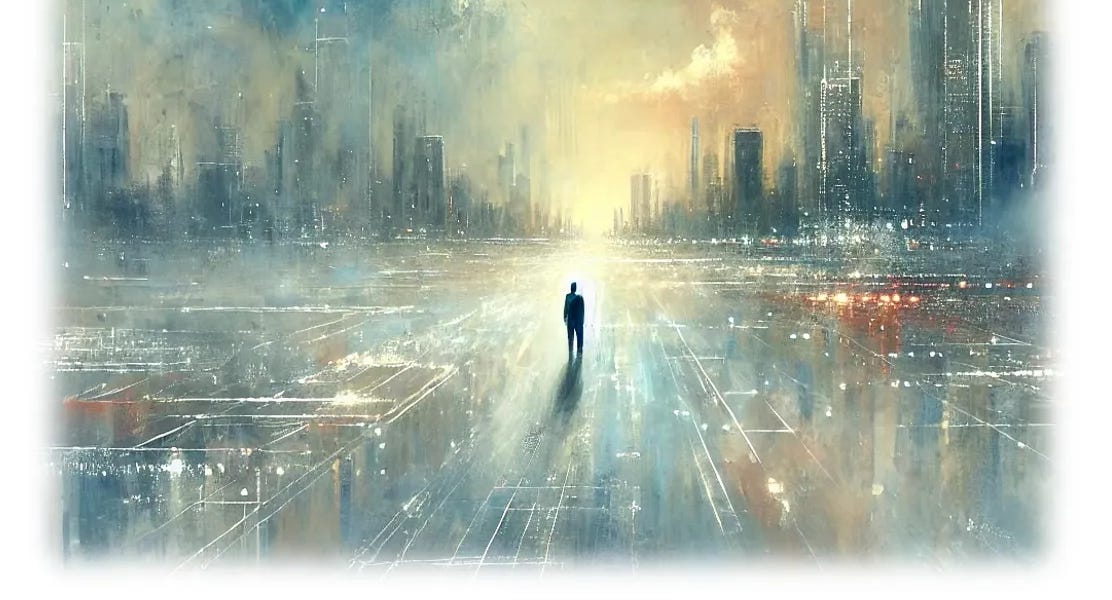The government uses archaic computer systems and outdated software such as Cobol. The DOGE team is using more efficient code and AI to sift through agencies expenses and reveal financial connections that would've otherwise been really hard to detect. It's really simple.
Let’s not forget where we started: the
acceleration toward the future: separating from everything big capital perceives as stagnation.
In other words, the “takeoff” toward a horizon where “sabotage”—whether ideological or administrative—would no longer be possible.
What, in these investors’ view, is
the main obstacle to freedom, the thing that would slow down or even prevent the realization of their vision of techno-efficiency?
Answer: representative democracy. The parliamentary system. Universal suffrage.
Politics, in general, as this term has been understood in America over the last 100 years.
Peter Thiel stated this as early as 2009, in
a lecture for a libertarian-oriented think tank:
“I no longer believe that freedom and democracy are compatible. (…)
The 1920s were the last decade in American history during which one could be genuinely optimistic about politics.
Since 1920, the vast increase in welfare beneficiaries and the extension of the franchise to women — two constituencies that are notoriously tough for libertarians — have rendered the notion of “capitalist democracy” into an oxymoron.”
More recently, that same idea—that democracy is an obstacle—was explained by another Silicon Valley billionaire who went from the Democratic camp to Trump’s camp:
Marc Andreessen.
In an
interview from January 2025, Andreessen—who helped Trump with hiring interviews during the period between the presidential election and his inauguration—cites an Italian political scientist from the 20th century, Robert Michels, who proposed the concept of the
“iron law of oligarchy.”
According to this concept, any form of social organization, no matter how democratic it tries to be at first, ends up becoming an oligarchy, meaning that true democracy is impossible, especially for large populations.
The explanation is that the masses cannot organize, and sooner or later, power is anyway seized by a narrow elite (a
nomenklatura).
Ancient Greece and Florence during the Medici era were attempts at direct democracy, but both, according to Michels, failed miserably.
Finally, the most vehement critic of democracy is an eccentric thinker whose name has become relevant in America’s new political context because he is considered Peter Thiel’s “house philosopher.”

About accelerationism, NRx, and the intersection of technology, religion, and philosophy: an analysis of the essential ideas in the new American politics.

substack.com


